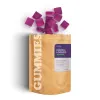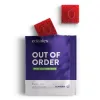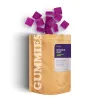In the ever-expanding world of cannabinoids, new discoveries are constantly reshaping the way we view cannabis and its potential effects. Among the most intriguing to emerge are Delta 8 products and THCP products.
These two cannabinoids, while similar in some respects, offer unique experiences due to their chemical structures and interactions with the body’s systems.
But when it comes to potency, which one reigns supreme? Let’s dive into the science, user experiences, and comparisons to uncover the answer!
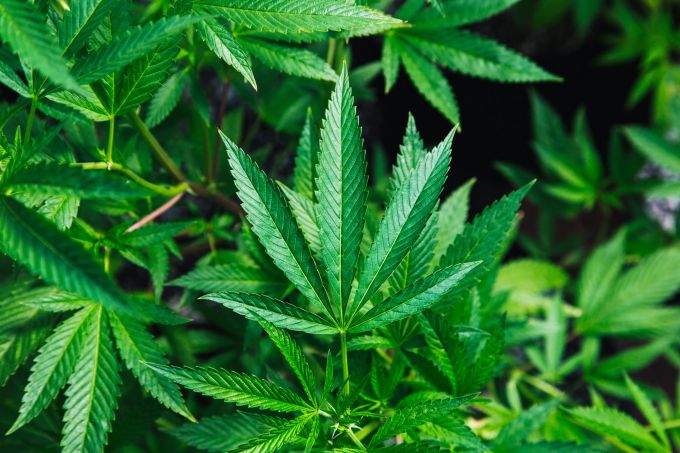
What Are Delta 8 and THCP?
Cannabinoids like Delta 8 and THCP have gained significant attention for their unique effects and potential therapeutic applications.
While both are derived from the cannabis plant, their chemical structures and mechanisms of action differ in ways that result in distinctly different experiences for users.
Understanding these differences is key to making informed choices about which cannabinoid might suit your needs.
Delta 8: The Milder THC Cousin
Delta-8 Tetrahydrocannabinol, commonly known as Delta 8, is a naturally occurring cannabinoid found in the cannabis plant.
It is structurally similar to Delta-9 THC—the primary psychoactive compound in cannabis—but with one critical difference: the position of the double bond on its molecular structure.
This subtle variation results in Delta 8 being less potent and producing a milder high compared to its Delta 9 counterpart.
Key Characteristics of Delta 8:
- Milder Psychoactive Effects: Unlike Delta 9, Delta 8 produces a less intense high, making it an appealing option for those who are new to cannabis or seeking a gentler experience.
- Promotes Relaxation and Calmness: Users frequently report feelings of relaxation, stress relief, and a calming effect without the overpowering euphoria associated with stronger cannabinoids.
- Therapeutic Appeal: Delta 8’s subtle effects are often sought after for managing mild discomfort, promoting better sleep, or enhancing mood without significant impairment.
- Hemp-Derived Accessibility: As a derivative of hemp, Delta 8 is more widely available in legal markets, especially in areas where Delta 9 is restricted

THCP: The New Powerhouse Cannabinoid
Tetrahydrocannabiphorol (THCP) is a recently discovered cannabinoid that has turned heads in the scientific community.
Identified by Italian researchers in 2019, THCP has a unique chemical structure featuring a seven-carbon alkyl side chain—a rarity among cannabinoids.
This extended side chain allows THCP to bind more effectively to CB1 receptors in the brain, resulting in significantly higher potency than traditional THC compounds.
Key Characteristics of THCP:
- Unparalleled Potency: THCP is estimated to be 33 times more effective at binding to CB1 receptors than Delta 9, giving it unmatched potency even in trace amounts. Users should approach with caution due to its intense psychoactive effects.
- Powerful Effects at Low Doses: Due to its strength, THCP delivers pronounced effects with very small quantities, making it a cannabinoid of interest for both efficiency and economic value.
- Scarcity in Nature: THCP is found in only minute concentrations in certain cannabis strains, adding to its rarity and appeal for research and niche markets.
- Therapeutic Potential: Thanks to its strong receptor binding, THCP holds promise for managing conditions like chronic pain, inflammation, and severe nausea, but more research is needed to fully understand its benefits.

Potency Comparison: Delta 8 vs. THCP
When discussing cannabinoid potency, the focus often shifts to how well a compound binds to CB1 receptors, the primary receptors responsible for the psychoactive effects of THC.
Let’s examine the potency of Delta 8 and THCP based on scientific studies and user experiences.
Receptor Binding Affinity
As previously stated, studies have revealed that THCP binds to CB1 receptors with approximately 33 times the affinity of Delta 9.
This enhanced binding capacity translates to significantly stronger effects, even in minute doses.
Delta 8, on the other hand, binds to CB1 receptors with about half the affinity of Delta 9, resulting in a milder experience.
Practical Implications
|
Cannabinoid |
Estimated Potency Compared to Delta 9 |
Common Effects |
|---|---|---|
|
Delta 8 |
~50% as potent |
|
|
THCP |
~33x more potent |
|
User Experiences
- Delta 8: Users often describe the effects as a "gentle high" that enhances mood and reduces stress without overwhelming psychoactivity. It’s ideal for daytime use or for individuals who are sensitive to THC.
- THCP: Due to its extreme potency, THCP is favored by experienced cannabis users looking for a more powerful high. Its effects are intense and may include profound relaxation, heightened sensory perception, and strong euphoria.
Delta 8 vs. THCP: The Effects and Benefits
The effects of cannabinoids like Delta 8 and THCP vary significantly based on their potency, method of consumption, and individual user tolerance.
These differences influence their appeal to various types of users, ranging from those seeking therapeutic relief to those looking for recreational benefits.
Delta 8: Balanced and Manageable
Delta-8 THC is known for its balanced effects, which make it a popular choice for medicinal and recreational use.
Reported Benefits:
- Stress Reduction: Provides calming effects without inducing paranoia.
- Discomfort Relief: Alleviates chronic pain and inflammation.
- Appetite Stimulation: Helps combat appetite loss.
Common Side Effects:
- Dry mouth
- Mild dizziness
- Increased appetite
THCP: Potency with Power
THCP’s unparalleled potency makes it a double-edged sword. While it offers enhanced therapeutic potential, it also comes with risks of overconsumption.
Reported Benefits:
- Pain Management: Due to its strong binding to CB1 receptors, THCP may provide significant relief from severe pain.
- Sleep Induction: Its sedative properties make it ideal for insomnia sufferers.
- Mood Enhancement: Delivers intense euphoria and stress relief.
Common Side Effects:
- Intense sedation
- Paranoia (at high doses)
- Rapid heart rate
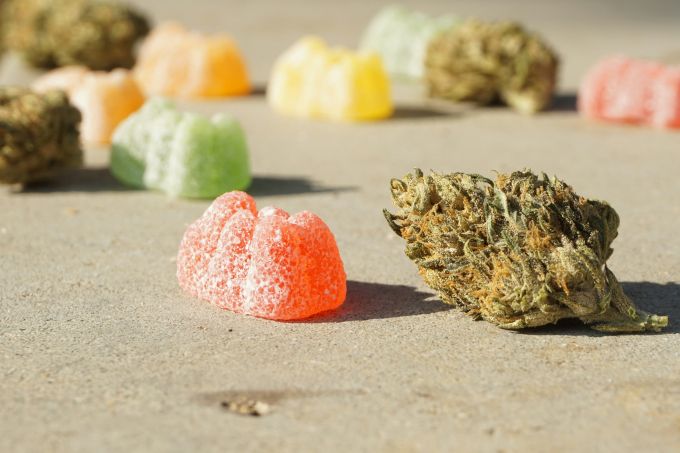
Edibles: Delta 8 vs. THCP Gummies
When consumed as edibles, such as gummies, Delta 8 and THCP offer distinctly different experiences due to the way the body processes these cannabinoids.
Edibles typically take longer to take effect as they are metabolized through the digestive system, converting THC compounds into more potent forms in the liver.
For Delta 8, this means a gradual onset of effects that feel smooth and controlled. For THCP, the already high potency is amplified during digestion, resulting in intense and long-lasting effects that can easily overwhelm novice users.
Proper dosage and patience are key when exploring gummies containing either cannabinoid.
In other words, delta 8 gummies are your go-to if you want to feel relaxed, soothed, and mellowed out. THCP gummies, on the other hand, are perfect for people seeking more intense and pronounced psychoactive effects.
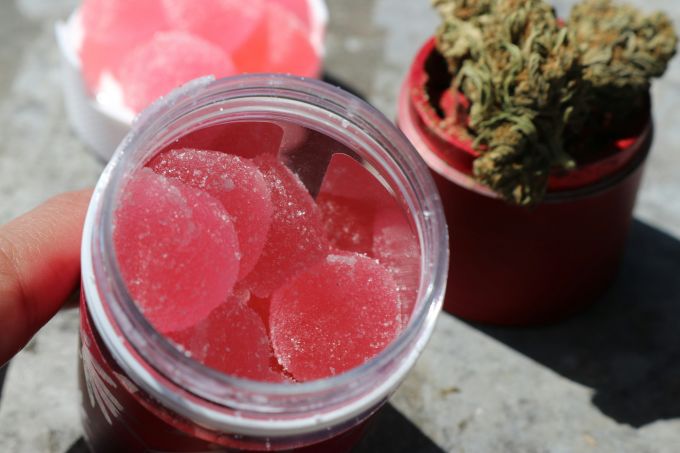
Delta 8 vs. THCP: Safety Profiles
The safety of Delta 8 and THCP depends largely on their potency and how they interact with the body’s endocannabinoid system. While both compounds can offer significant benefits, understanding their side effects and how to mitigate risks is essential for responsible use.
Delta 8: A Gentler Option
Delta 8 is widely regarded as safer for casual use, given its milder psychoactive effects. Overconsumption typically results in mild discomfort, such as grogginess or dry mouth, rather than severe side effects.
THCP: Handle with Care
The extreme potency of THCP necessitates caution. Novice users or those with low THC tolerance should approach THCP with care, starting with microdoses to avoid adverse effects.
Here are some safety tips for those feeling brave enough to try THCP:
- Start with the smallest possible dose.
- Avoid combining with alcohol or other sedatives.
- Monitor your body’s reaction before increasing the dosage.
Legal Landscape: Delta 8 vs. THCP
The legal status of cannabinoids like Delta 8 and THCP is an evolving topic, with regulations varying widely depending on jurisdiction.
Understanding the legality of these compounds is crucial for both consumers and businesses, as compliance with local laws can affect availability and usage.
Delta 8
- Legal Status: Often considered federally legal under the 2018 Farm Bill if derived from hemp and contains less than 0.3% Delta-9 THC.
- State Restrictions: Several states have restricted or banned Delta-8 THC due to regulatory concerns.
THCP
- Legal Status: Largely unregulated due to its recent discovery and rarity. Legal interpretations vary by jurisdiction.
- Market Availability: Limited, as it is found in trace amounts in cannabis plants and requires advanced extraction methods.
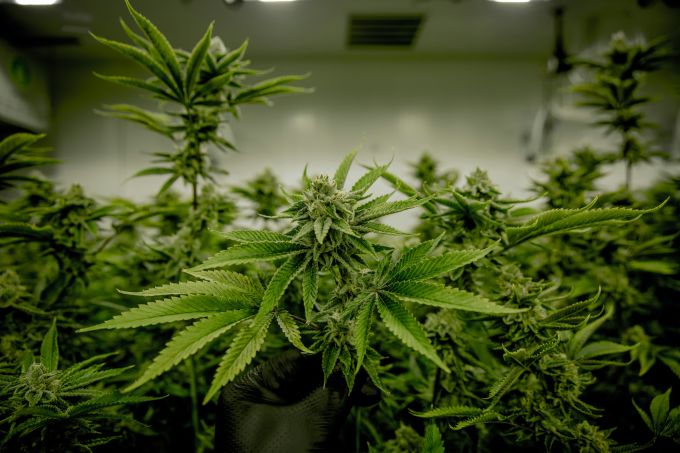
Choosing Between Delta 8 and THCP
When deciding between Delta 8 and THCP, it’s essential to weigh several key factors to determine which cannabinoid aligns best with your needs and preferences.
Desired Effects
Delta 8 is an excellent choice if you’re looking for mild relaxation and improved focus. Its effects are subtle and suitable for enhancing daily activities without overwhelming psychoactivity. In contrast, THCP is ideal for those seeking intense psychoactive effects and a profound sensory experience.
Experience Level
Delta 8 caters to beginners due to its manageable potency and reduced likelihood of adverse side effects. On the other hand, THCP’s extreme potency makes it better suited for seasoned cannabis users who have developed a higher tolerance and familiarity with cannabinoids.
Legal Considerations
The legal status of Delta 8 and THCP varies by jurisdiction. Ensure you verify local laws to confirm whether these cannabinoids are permitted in your area before making a purchase.
Availability and Cost
Delta 8 is widely available and generally more affordable, making it a convenient option for most consumers. THCP, however, is much rarer and often comes at a higher price point due to its limited production and high demand.
Final Verdict: Potency, Experience, and Choice
Delta 8 THC and THCP each offer unique advantages, but their differences in potency, effects, and accessibility make them suitable for different audiences.
Delta 8 provides a gentle, manageable high ideal for new users and those seeking relaxation without overwhelming effects.
THCP, on the other hand, is a powerhouse cannabinoid that delivers unparalleled potency, making it a compelling option for seasoned cannabis enthusiasts.
Understanding the distinctions between these cannabinoids empowers consumers to make informed decisions, ensuring a safe and enjoyable cannabis experience.
Whether you choose Delta 8 or THCP, always prioritize quality products and responsible consumption.






